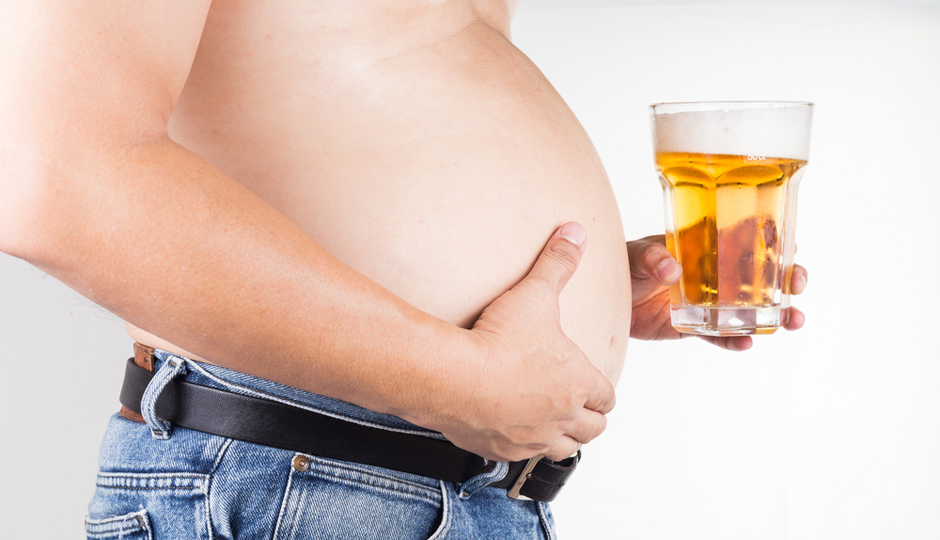In my journey as a medical/health writer, I’ve been asked many times, “How do you lose belly fat?” With so much to eat and drink this season, dealing with those extra pounds around your middle can seem like an unnecessary challenge. However, the good news is that losing that stubborn belly fat is entirely possible.
Carrying a few extra pounds isn’t uncommon, especially as people age,” says Healthline. “However, those extra pounds come with serious health risks, particularly if they are in the form of belly fat.” Excess belly fat is not just a cosmetic concern—it’s associated with an increased risk of various chronic conditions, making it important to address.
Mayoclinic: For men, a waist measurement of more than 40 inches (102 centimetres) signals an unhealthy amount of belly fat and a higher risk of health problems. The greater the waist measurement, the higher the health risks. Regardless of a person’s overall weight, having a large amount of belly fat raises the risk of:
High blood pressure.
An unhealthy amount of fat in the blood.
Sleep apnea.
Heart disease.
High blood sugar and diabetes.
Certain cancers.
Stroke.
Fatty liver.
Early death from any cause.
Beer Belly Syndrome
“Drinking alcohol leads to what’s sometimes called a beer belly, but beer alone isn’t to blame. Drinking too much alcohol of any kind can add to the problem. The less a person drinks, the fewer calories and the less likely belly fat will build up over time” Mayoclinic. You might have to rethink your sobriety as a New Year’s resolution, which can also heal the beer belly.
Here are some healthy tips to consider for losing that beer belly:
Completely stop or moderate your alcohol intake: The high price of healthy living is a wise but hard choice, if health is your choice then very well go ahead. “One study on alcohol use involved more than 2,000 people. Results showed those who drank alcohol daily but averaged less than one drink per day had less belly fat than those who drank less frequently but consumed more alcohol on the days they drank” Healthline.
Eating a high protein diet: Protein is one food source that builds muscles instead of fats, fish meat, eggs, beans etc. “Protein is an essential nutrient for weight management. High protein intake increases the release of the fullness hormone peptide YY, which decreases appetite and promotes fullness. Protein also raises your metabolic rate and helps you to retain muscle mass during weight loss” Healthline.
Portion control: Controlling quantity is a good kick-off on the journey to lose the middle pouch. “Even when you’re making healthy choices, calories add up. At home, cut down your portion sizes. In restaurants, share meals or eat half a meal and take the rest home” Mayoclinic.
Start moving: An active lifestyle changes many outcomes, exercise can not be over-emphasised. “For most healthy adults, the Department of Health and Human Services recommends moderate aerobic activity, such as brisk walking, for at least 150 minutes a week or vigorous aerobic activity, such as jogging, for at least 75 minutes a week. Strength training exercises are recommended at least twice a week. You might need to exercise more if you want to lose weight or meet specific fitness goals. There is some evidence that high-intensity interval training (HIIT) can help reduce belly fat, as can strength training” Mayoclinic.
Belly fat, often referred to as the “beer belly,” poses significant health risks, including heart disease, diabetes, certain cancers, and more. Addressing this challenge requires a multi-faceted approach that incorporates lifestyle changes and consistent effort. Key steps to losing belly fat include: moderating or completely cutting down alcohol intake, adopting a high-protein diet to promote muscle building and fullness, practicing portion control to prevent overeating, and maintaining an active lifestyle with regular exercise, such as aerobic and strength training.
High-intensity interval training (HIIT) can also accelerate results. The journey to losing belly fat is not a quick fix but a gradual and disciplined process. It’s important to make sustainable choices and set realistic goals while understanding that consistency is more important than intensity. Small, consistent steps—like moderating your alcohol intake, eating balanced meals, and incorporating regular exercise into your routine—will yield long-term results. Remember, it’s not about perfection but progress. With time, patience, and perseverance, the goal of a healthier you is within reach. Start today, and keep moving forward!
